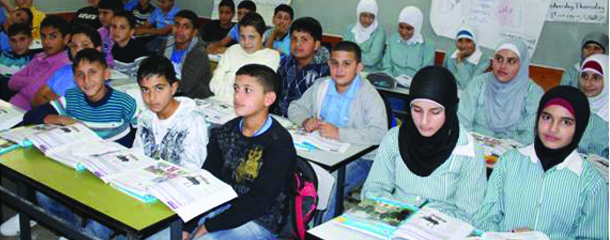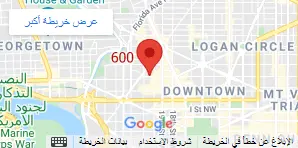
Planning is well underway to lay the foundations for a large-scale school improvement program by the time schools open in Palestine at the end of August. Announced in April, the USAID-funded School Improvement Program (SIP) will budget $20 million over four years on a strategy to strengthen school leadership, teaching quality, and community engagement in 50 schools in marginalized areas of the West Bank and East Jerusalem. Additional measures such as career guidance, life skills training, and experiential learning aim to overcome low student achievement and other challenges to youth development.
The first step has been to undertake an intensive school assessment process in order to identify schools in the West Bank and East Jerusalem for inclusion in the program. Once the list is finalized by the Ministry of Education and Higher Education (MOEHE) and USAID, the program will organize district-wide events with parents, teachers, students, and other community members.
Working with MOEHE’s National Institute for Education and Training, SIP will enroll school principals in a 10-month intensive leadership diploma program and a professional development program for math, science, Arabic, English, technology and classroom teachers. Longer term, SIP will introduce other measures designed to enhance student and parental engagement and foster learning. They include an upgrading of computer and science labs and libraries based on the results of a forthcoming needs assessment.
“We hope to have as much in place as possible by the start of the new school year,” said Phillip Butterfield, SIP Chief of Party. “The problems that we are seeing in these schools demand both urgent action and long-term solutions, and this will enable us to use the program’s full lifespan to address them.”
SIP is the latest in a series of initiatives through which Amideast, in partnership with USAID, has directly supported the efforts of the Palestinian Authority to introduce reforms and strengthen institutional capacity in the education sector. Amideast is currently implementing the USAID-funded Leadership and Teacher Development Program, which seeks to improve approaches to teacher education and development, and the Palestinian Faculty Development Program (PFDP), funded by USAID and Open Society Foundations, which addresses long-term issues of reform in teaching and learning practices in Palestinian higher education. In addition, between 2007 and 2012, Amideast implemented the USAID-funded Model Schools Network Program, which introduced basic education reforms in a 69-school network of “model” schools.

